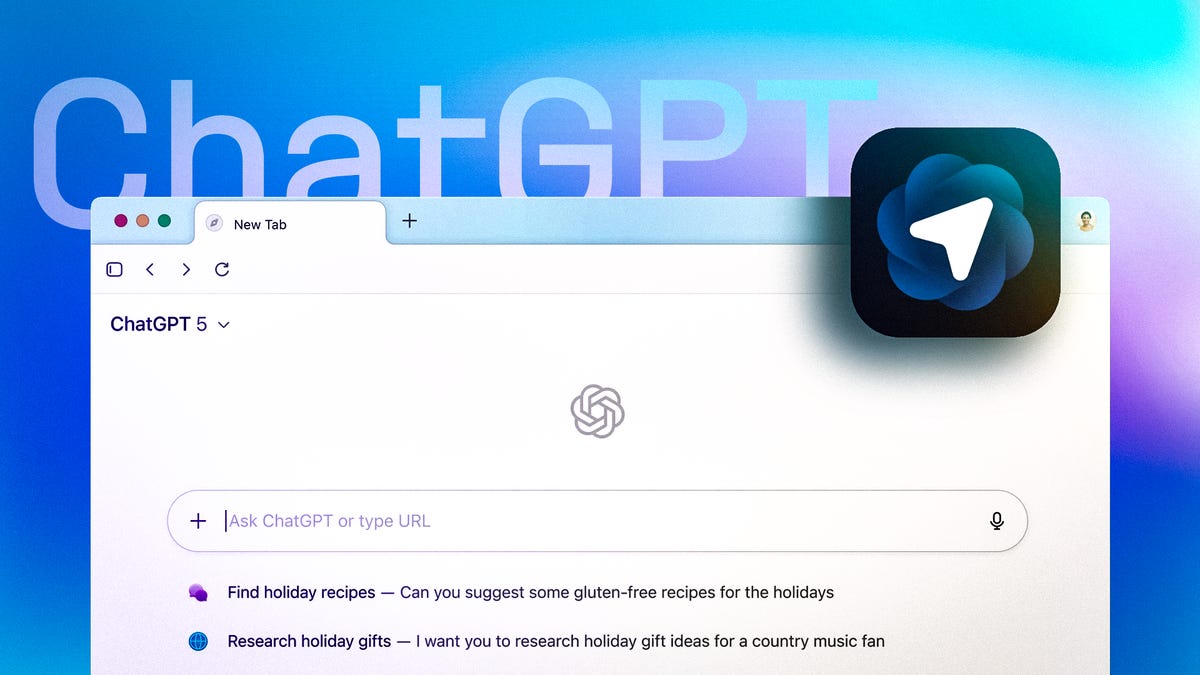OpenAI Unveils ChatGPT Atlas, an AI‑Powered Web Browser

Key Points
- OpenAI launches ChatGPT Atlas, an AI‑integrated web browser for macOS.
- Features include a ChatGPT sidebar, in‑line writing assistance, and natural‑language commands.
- Optional browser memory tracks past pages and topics, enabling smart suggestions.
- Agent mode allows limited automated tasks like travel booking and grocery ordering.
- Competes with Google’s Gemini‑enhanced Chrome and Perplexity’s Comet browser.
- OpenAI faces a copyright lawsuit from Ziff Davis over its AI training data.
- Windows, iOS and Android support is announced as forthcoming.
- Users sign in with a ChatGPT account and can import existing bookmarks and passwords.
OpenAI announced the launch of ChatGPT Atlas, a generative AI‑enhanced web browser that integrates ChatGPT directly into the browsing experience. Available now for macOS, the browser offers traditional features like tabs and bookmarks alongside AI functions such as a built‑in sidebar for summaries, in‑line writing assistance, and natural‑language commands. Atlas also includes optional memory to track past research and a beta agent mode that can perform limited tasks for users. The rollout arrives amid growing competition, with Google embedding Gemini in Chrome and Perplexity releasing its own AI browser, while OpenAI faces a copyright lawsuit from Ziff Davis.
OpenAI Introduces ChatGPT Atlas
OpenAI has released ChatGPT Atlas, a generative AI‑powered web browser that blends the familiar layout of traditional browsers with the conversational capabilities of ChatGPT. The announcement was made during a YouTube livestream that featured CEO Sam Altman and other OpenAI executives. Atlas is currently available for macOS users, with support for Windows, iOS and Android described as "coming soon."
Key Features and Functionality
Atlas retains standard browser elements such as tabs, bookmarks, extensions, and an incognito mode. What sets it apart is the integration of ChatGPT throughout the interface. Users can open a new tab and either type a URL or pose a question directly to ChatGPT. The browser automatically creates separate result tabs for links, images, videos and news.
A built‑in ChatGPT sidebar can analyze the content of any page, providing on‑the‑fly summaries, explanations or quick answers without requiring users to leave the site. In‑line writing assistance is also available, offering suggestions, edits and completions inside any text field, from email drafts to form entries.
One notable addition is optional browser memory, which tracks previously visited pages and topics. Users can enable, view, edit or delete this memory at any time, and the system can suggest related pages, help return to past research or automate repetitive tasks. Natural‑language commands let users type instructions such as “reopen the shoes I looked at yesterday” or “clean up my tabs,” and the browser will respond accordingly.
Agent Mode and Subscription Access
OpenAI previewed a new “agent mode” that allows ChatGPT to take limited actions on behalf of the user, including booking travel, ordering groceries or gathering research. This mode is positioned as faster than standard ChatGPT and includes additional safeguards. Agent mode is currently available to Plus and Pro subscribers and is in beta for Business users.
Competitive Landscape
The launch of Atlas arrives as major tech companies race to embed AI assistants deeper into everyday tools. Google has already incorporated its Gemini model into the Chrome browser, adding AI capabilities to the popular web platform. Earlier in the year, AI search tool developer Perplexity introduced Comet, an AI‑powered Chromium‑based browser.
Legal Context
OpenAI’s move also occurs amid legal challenges. Ziff Davis, the parent company of CNET, filed a lawsuit alleging that OpenAI infringed its copyrights in training and operating its AI systems. The dispute underscores ongoing tensions around the use of copyrighted material in AI development.
Availability and Onboarding
Users can download Atlas from chatgpt.com/atlas. Upon first launch, they must sign in with a ChatGPT account, after which they can import bookmarks, saved passwords and browsing history from their existing browser.